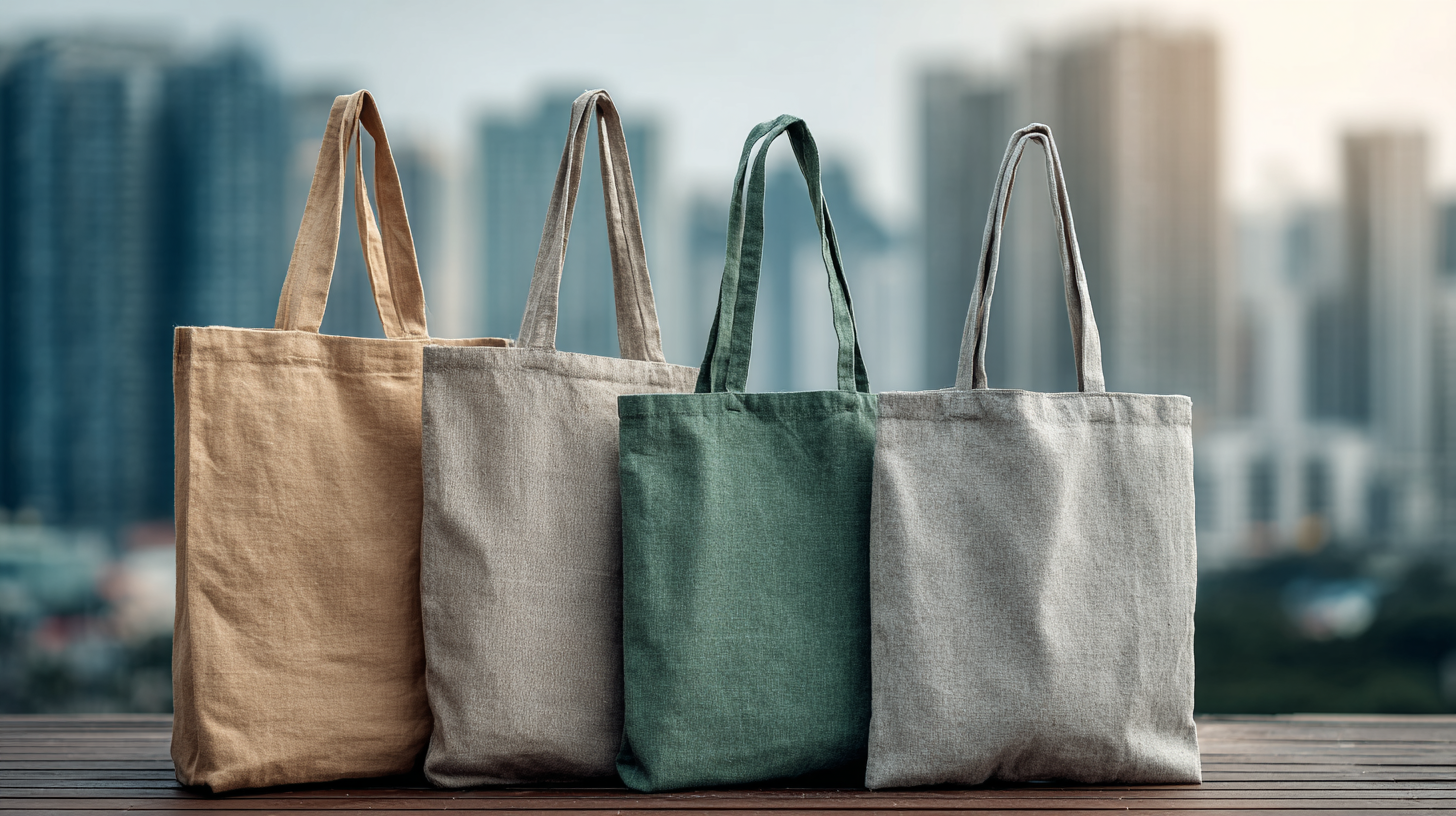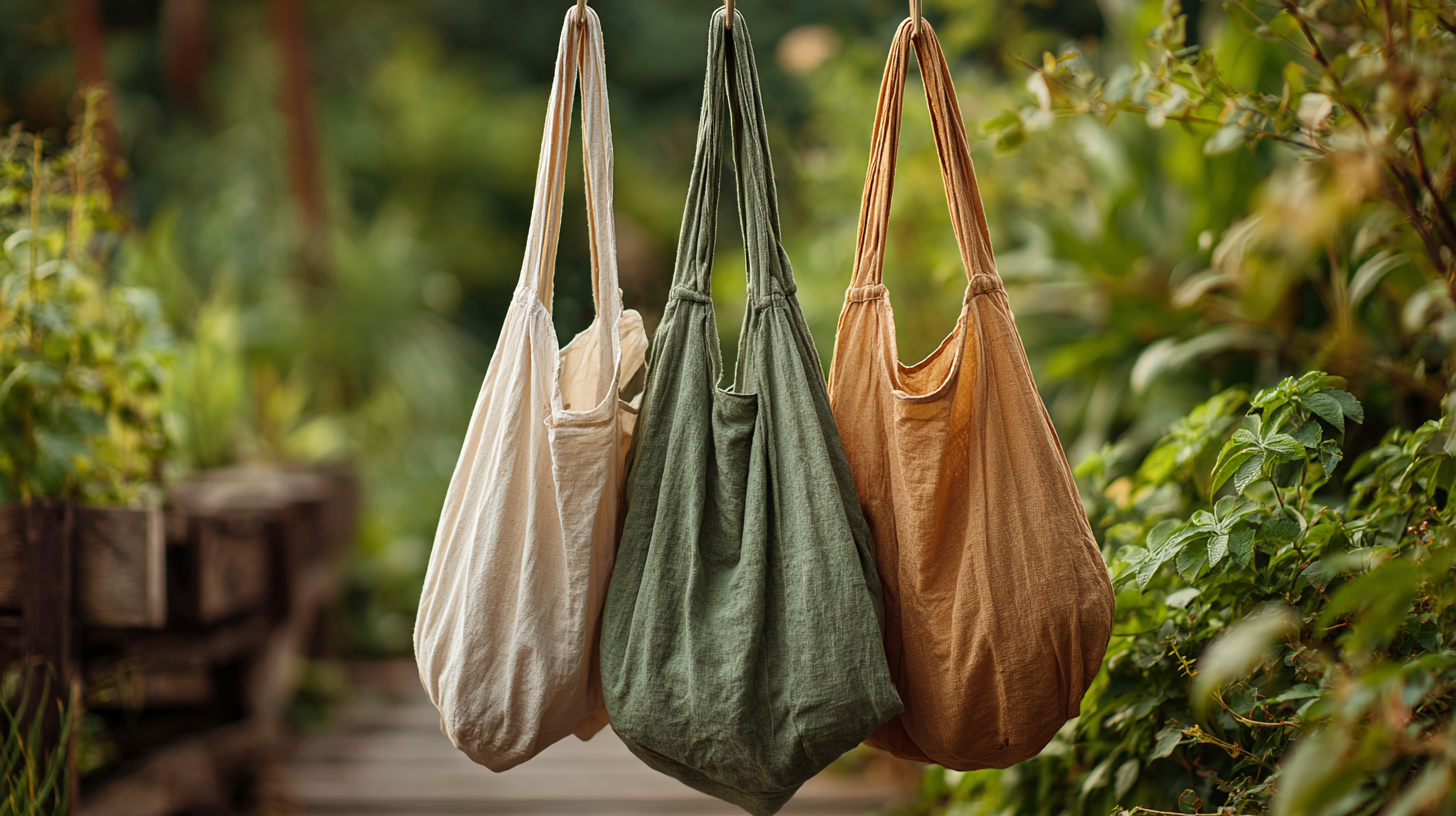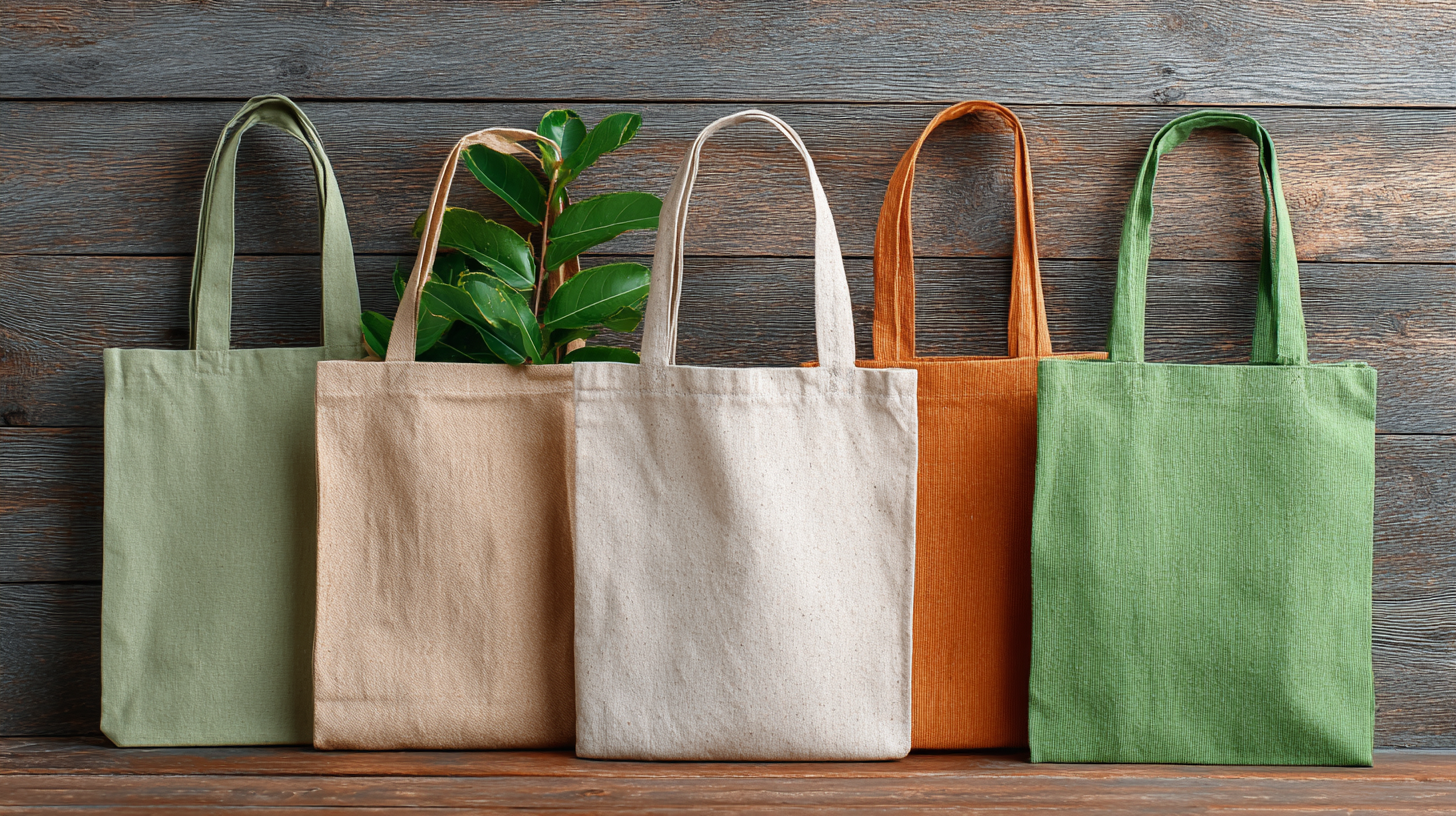In an era where sustainability is more crucial than ever, the integration of eco-friendly practices into our daily lives can significantly reduce our environmental footprint. One of the simplest yet most effective changes individuals can make is to adopt Eco Reusable Bags as part of their shopping habits. These eco-conscious alternatives not only help minimize plastic waste but also promote a culture of sustainability.

This guide will delve into practical strategies and tips for maximizing your environmental impact through the use of Eco Reusable Bags, exploring the various options available, how to properly care for and maintain them, and the positive effects they have on the planet.
By making informed choices and embracing reusable solutions, we can collectively contribute to a greener future while enjoying the benefits that Eco Reusable Bags bring to our everyday lives.
Eco reusable bags have become a cornerstone in the fight against environmental degradation, offering a sustainable alternative to single-use plastic bags. According to a study conducted by the Eco-Business Network, it is estimated that one reusable bag can replace up to 1,000 single-use plastic bags over its lifetime, significantly reducing plastic waste. In a world where over 1 trillion plastic bags are used annually, the shift to reusable options presents a remarkable opportunity to minimize environmental impact.
In addition to reducing plastic waste, eco reusable bags also contribute to lower greenhouse gas emissions. The Life Cycle Assessment by the European Commission found that using a cotton tote bag for just one year can reduce carbon emissions by as much as 90% compared to regularly using single-use plastic bags. This is crucial in the context of global climate initiatives, where each small change can lead to substantial cumulative benefits. Embracing eco reusable bags is not just about convenience; it is a conscious step towards a more sustainable and eco-friendly lifestyle, making each shopping trip an opportunity to support environmental well-being.
When selecting eco reusable bags, the choice of materials is pivotal in ensuring sustainability. Many options exist, but it’s essential to prioritize those with minimal environmental impact. Organic cotton is a popular choice due to its biodegradability and low pesticide usage during cultivation. Additionally, recycled materials, such as those derived from post-consumer plastics, help reduce waste while giving new life to materials that would otherwise contribute to landfills.
Another excellent option is hemp, known for its durability and resilience. It requires less water and fewer fertilizers compared to conventional crops, making it a more eco-friendly choice. Biodegradable synthetic fabrics, such as those made from plant-based polymers, can also provide effective alternatives, combining the benefits of durability with a lower ecological footprint. Ultimately, selecting the right materials not only amplifies the positive impact of using eco reusable bags but also encourages a more mindful approach to consumption in general.
This chart illustrates the environmental impact of different materials used for eco reusable bags, measured in grams of CO2 emitted per bag produced. The data indicates how various materials contribute to carbon emissions, highlighting sustainable choices for consumers.
When it comes to maximizing your environmental impact with eco reusable bags, proper care and maintenance are crucial. To extend the life of your reusable bags, it's essential to wash them regularly. Most fabric bags can be machine washed on a gentle cycle, while others might require hand washing. Using a mild detergent can prevent any unpleasant odors without damaging the fabric. Always check the manufacturer’s instructions for specific cleaning guidance to maintain the integrity of the material.
In addition to regular washing, drying your bags correctly is important. Air drying is the safest method to preserve their shape and prevent any shrinkage. If you choose to use a dryer, make sure to use a low-heat setting. Additionally, storing your reusable bags properly can prevent wear and tear. Keep them in a cool, dry place, and avoid cramming them into tight spaces to maintain their structure. By following these simple care tips, you can ensure your eco reusable bags not only serve you well but also contribute positively to the environment for years to come.
 Using eco reusable bags is a simple yet impactful way to enhance your daily sustainability efforts. According to a report by the Environmental Protection Agency, plastic bags contribute to the more than 4.8 million tons of plastic waste that ends up in landfills each year. By incorporating reusable bags into your routine, you’re not only reducing this waste but also encouraging a culture of environmental responsibility. For instance, simply replacing single-use plastic bags with reusable ones can result in saving approximately 1,000 plastic bags per person annually.
Using eco reusable bags is a simple yet impactful way to enhance your daily sustainability efforts. According to a report by the Environmental Protection Agency, plastic bags contribute to the more than 4.8 million tons of plastic waste that ends up in landfills each year. By incorporating reusable bags into your routine, you’re not only reducing this waste but also encouraging a culture of environmental responsibility. For instance, simply replacing single-use plastic bags with reusable ones can result in saving approximately 1,000 plastic bags per person annually.
Incorporating reusable bags into your daily life can be hassle-free with a few mindful strategies. Start by keeping a few reusable bags in your car, backpack, or purse to ensure they are always accessible when needed. Additionally, integrating reusable produce bags for fruits and vegetables can further minimize plastic use at the grocery store. A 2022 report from the Global Recycling Foundation indicated that switching to reusable bags can lead to a reduction of over 30% in plastic packaging waste. Therefore, by making these small changes in your shopping habits, you not only reduce your environmental footprint but also encourage others in your community to make similar sustainable choices.
Educating others on the importance of sustainable bag choices is crucial in the fight against plastic pollution. According to the World Economic Forum, by 2030, the annual flow of plastic into the ocean could nearly triple if current trends continue. When we choose eco-reusable bags over single-use plastic bags, we significantly reduce this threat. Research indicates that a single reusable bag can replace up to 1,000 plastic bags during its lifespan, leading to a substantial decrease in plastic waste.

Moreover, raising awareness about the benefits of eco-friendly bags encourages healthier consumer habits. A study conducted by the Ellen MacArthur Foundation highlights that if we switched to reusables, we could save 1.6 million metric tons of CO2 equivalent emissions each year. By hosting workshops, sharing informative content on social media, or simply discussing with friends and family, we can cultivate a more sustainable culture. Each conversation holds the potential to inspire change, gradually shifting collective purchasing behaviors towards more environmentally-friendly options.





